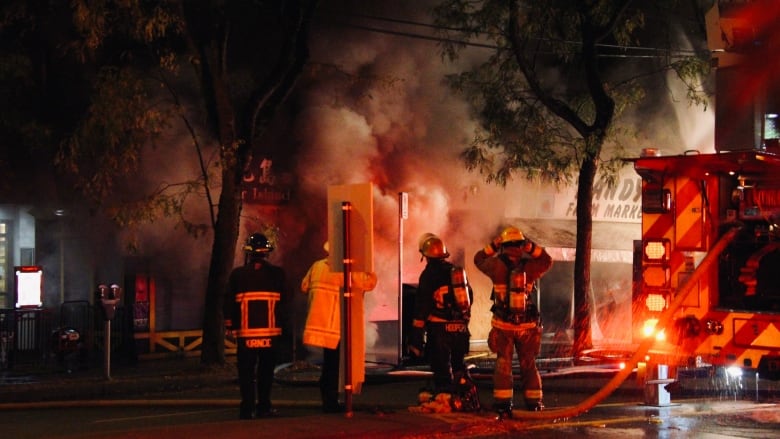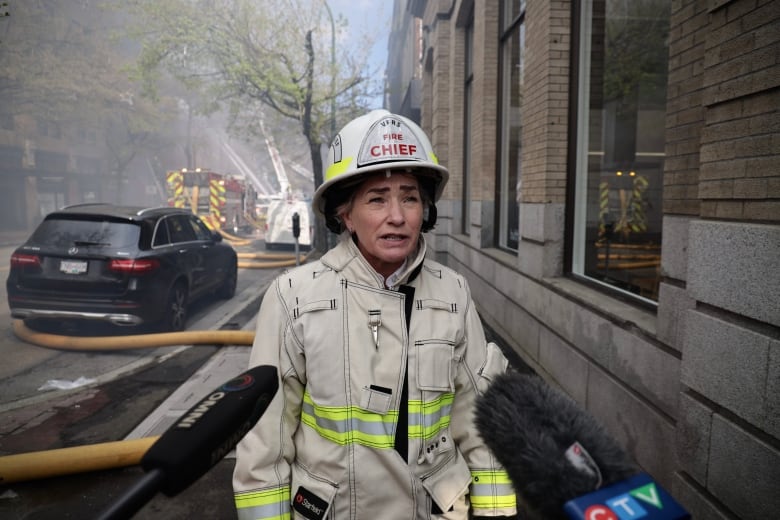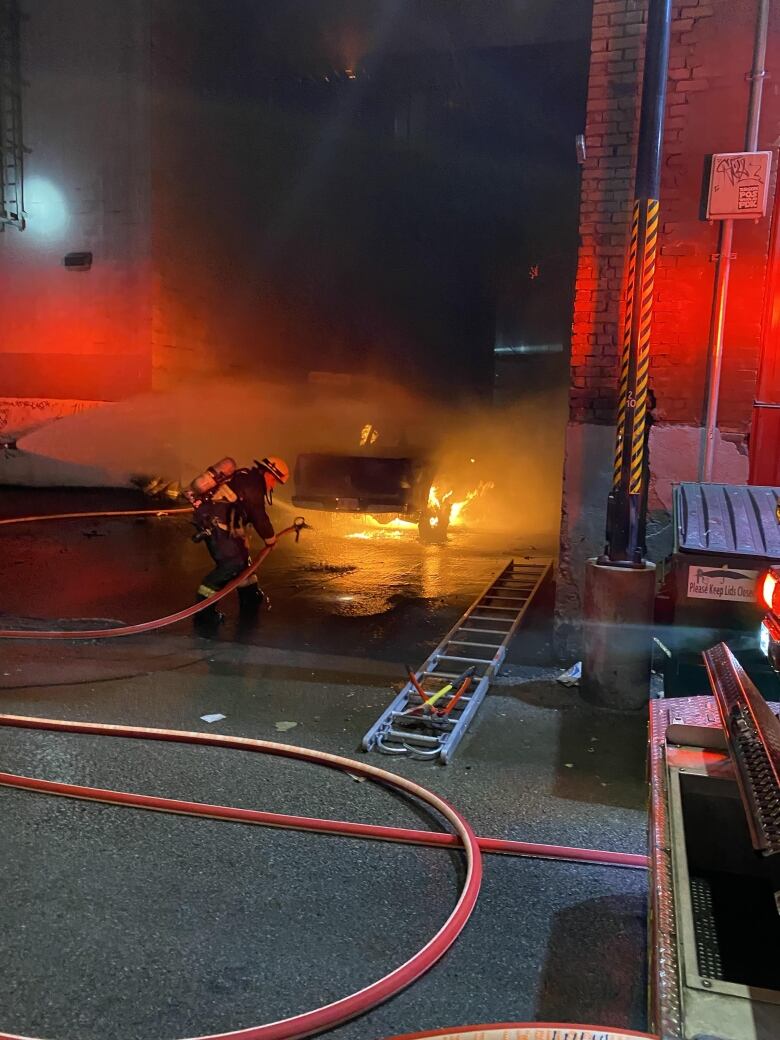Vancouver firefighters begin to ditch gear linked to cancer risks
Fire Chief Karen Fry says department could be first on continent to phase out controversial coats, pants

Vancouver's fire chief says some firefighters in her department will soon start to get new uniforms ones that don't contain a controversial group of chemicals potentiallylinked to high cancer rates in fire halls worldwide.
The Vancouver firefighters' union is praising the move to phase outjackets and pants containing polyfluoroalkyl(PFAS), which unions and fire chiefs across B.C. and North Americahave been callingfor since late 2022.
The group of chemicals, found in an innerlayer of most fire-resistant gear for fire personnel, has been linked to increased cancer rates among firefighters around the world.
Karen Fry, chief of the Vancouver Fire Rescue Services (VFRS), told CBC News the City of Vancouverrecently granted her request to phase in some PFAS-free gear forfirefighters in the city.
"We're really excited to be able to do anything to help prevent cancer in our firefighters," Fry said.
Vancouver's city manager has authorized a one-time purchase of PFAS-free gear for about 20 per cent of theVFRSworkforce, andstaff will soon recommend city councilapprovefunding to replace all remaining gear, according to a Sunday statement from the city.
"The city has a strong commitment to ensure we are taking steps to mitigate the hazards faced by firefighters and othercity staff on the job," a spokesperson said in an emailed statement to CBC News.
Fry said VFRS could be the first fire department in North America to start replacing its gear containing PFAS, according to what the manufacturer of the new PFAS-free uniforms told her.
"Cancer is the leading cause of death among firefighters in North America," Fry said in a phone interview Saturday. "This is something we really need to do, and being a leader in North America really stands out."
She said her own department has seen 34 current or former firefighters die from cancer presumed to be workplace-related since 2017.
"It's devastating, one of the hardest things as the chief, when we lose our staff for for doing what they do putting their lives on the line every single day to protect our community," she told CBC News.

PFAS are a group of at least 4,700 manufactured chemicals used in everything from fire department uniforms to firefighting foams, as well as some non-stick cookware and even cosmetics. Health Canadasaysitmonitorsthe chemicals closely as new variants are "continually being developed," the agency's website states.
"Adverse environmental and health effects have been observed ... and they have been shown to pose a risk to the Canadian environment," the federal agency said. "Cumulative exposure could increase the potential for adverse effects.
"Certain PFAS is associated with reproductive, developmental, endocrine, liver, kidney and immunological effects."
Health Canada also cites one particular type of PFAS used historically in firefighting "as possibly carcinogenic to humans."
Meanwhile, the U.S. government's National Institute for Standards and Technology (NIST) said on its websitethatfirefighting "textiles used in that protective clothing, called turnout gear, tend to release more PFAS when they are subject to wear and tear," and that its researchers documented "more than 20 types of PFAS might be present in firefighter gear."

'Landmark decision': firefighters union
Unions representing firefighters in Vancouverand B.C. say the change is long overdue and urged other departments to take note.
The International Association of Fire Fighters (IAFF) Local 18, which represents firefighters in Vancouver,praised what it called a "landmark decision" by the city on Friday.
"Thanks city, mayor, fire chief: Your commitment to the well-being of Vancouver firefighters will undoubtedly save lives," the union saidon X, formerly known as Twitter. IAFF Local 18 representatives were not available for comment before publication.
According to IAFF general president Edward Kelly, fire departments across North America have come under increased pressure to address higher-than-average cancer rates amongmembers.
"All of us have lost friends to cancer too many of them," Kelly told attendees at a U.S. fire administrator's conference onOct.13."Too many of our brothers and sisters, gone far too soon."
Last week, B.C. Greens MLA Adam Olsen introduced a private member's bill that would require fire departments across the province to phase out equipment and foam containing PFAS in the next five years.
The proposed legislation follows calls from theFire Chiefs' Association of B.C. and B.C. Professional Fire Fighters'Association to remove equipment containing PFAS.
"The time has long passed for occupational cancer to be accepted as 'part of the job,'" the associationssaid in a joint statement last summer.
"We must raise our collective voices and diligently work toward a day when firefighting gear will not be a source of firefighter illness."












_(720p).jpg)


 OFFICIAL HD MUSIC VIDEO.jpg)
.jpg)



























































































